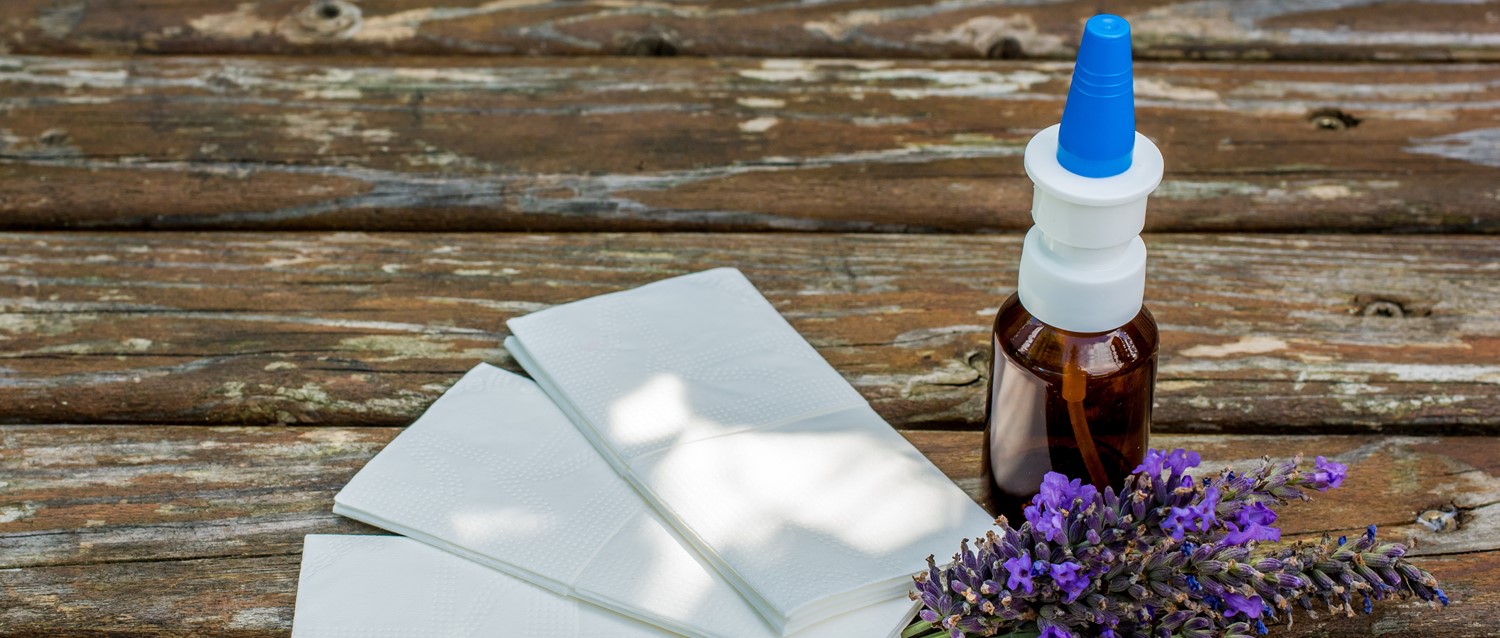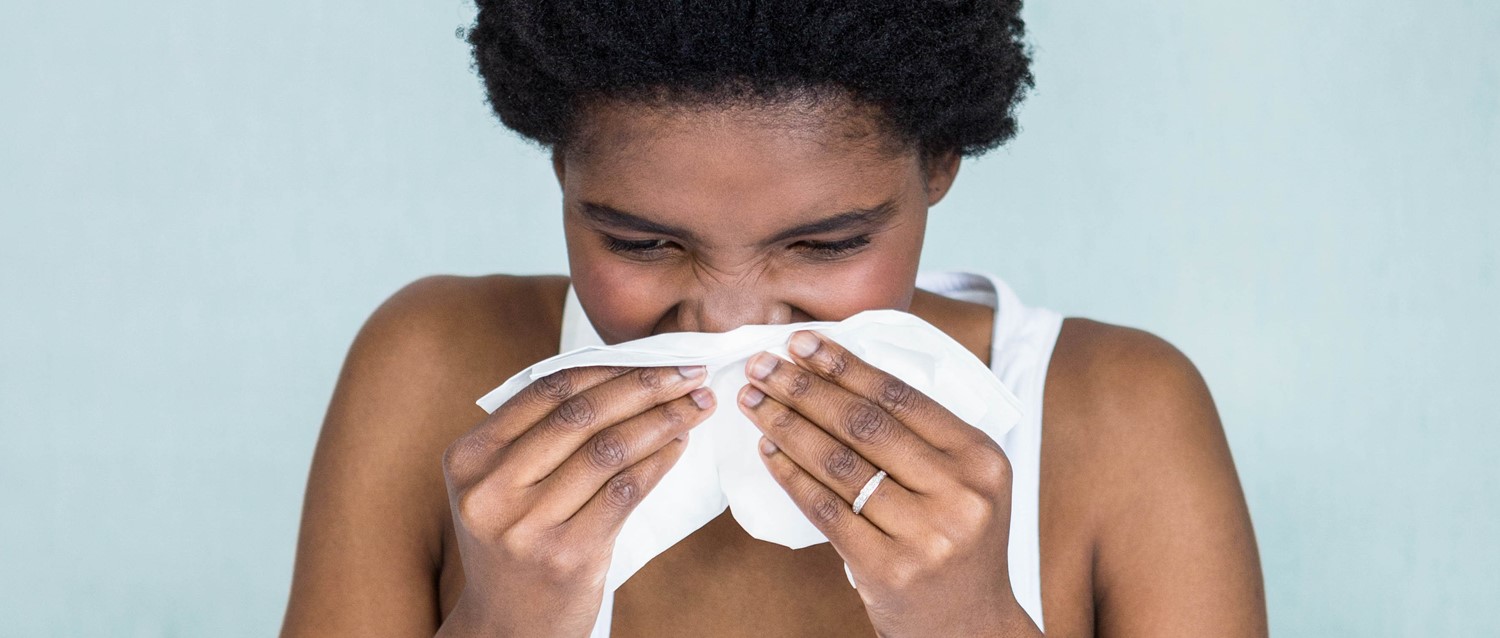
Which type of hay fever nasal spray is right for you?
Peer reviewed by Dr Krishna Vakharia, MRCGPLast updated by Amberley DavisLast updated 14 Jun 2022
Meets Patient’s editorial guidelines
- DownloadDownload
- Share
- Language
- Discussion
For hay fever sufferers, it's almost impossible to totally avoid pollen throughout spring and summer. Thankfully, there are treatments that can provide hay fever relief, and these come in the form of oral tablets, eye drops, non-drug methods, and nasal sprays. With so many options to consider, how do you know if nasal sprays are right for you, and which type of hay fever nasal spray is best?
In this article:
Video picks for Hay fever
Continue reading below
How do hay fever nasal sprays work?
If you're battling with hay fever symptoms in order to enjoy Great British Summer-time barbecues, picnics, and other outdoor activities, you're not alone. Over a quarter of adults and 10-15% of children1 experience this seasonal allergy to pollen (a form of allergic rhinitis) every year.
Most people reach for the hay fever tablets first; a fast-acting and budget-friendly treatment for itchiness, runny noses, and irritated or watery eyes. However, if you often have a blocked and bunged-up nose (nasal congestion) you may want to consider a hay fever nasal spray. These can help to ease congestion as well as the other irritating and uncomfortable symptoms you may have.
How to use hay fever nasal spray
Blow your nose.
Give the bottle a shake.
Tilt your head forwards.
Insert the tip of the upright bottle just inside one nostril (don't angle the bottle, just your head).
Use your free hand to close your other nostril.
Apply one or two sprays as prescribed while breathing in (don't sniff too hard as the spray could travel past the nose and into the throat).
Main types of hay fever nasal spray
Steroid nasal sprays - contain a medicine called a steroid (also known as a corticosteroid) which reduces swelling (inflammation) and mucus in your nose. These are available over the counter and on prescription in higher doses.
Antihistamine nasal sprays - contain a medicine called an antihistamine which works by blocking the action of the chemical called histamine in your nose. It's the chemical reaction of histamine - when triggered as an immune system response to pollen - which causes symptoms. These sprays are only available on prescription.
Combination nasal sprays - contain both a steroid and an antihistamine and are a great option if the above single-treatment sprays don't provide you with enough relief. These are only available on prescription.
The best hay fever nasal sprays
1. The combination hay fever nasal spray
The steroid-antihistamine combination spray is considered the most effective2. However, this doesn't necessarily mean it's the best hay fever nasal spray for everyone. It may well be that a spray containing just a steroid or just an antihistamine works wonders for your hay fever - it's all about finding a good fit, often through trial and error.
The right fit for you?
Only available on prescription for adults and children.
For those who have already tried the maximum dose of prescription steroid nasal spray and still experience symptoms.
2. The steroid hay fever nasal spray
When it comes to steroid versus antihistamine sprays, research3 suggests that the best hay fever nasal spray is steroid-based. As well as being better at easing your symptoms, steroid nasal sprays can improve your sleep at night and keep you from feeling drowsy (sleepy) in the day.
The right fit for you?
Available to buy in pharmacies for adults over 18 years of age.
Available on prescription in higher doses if your symptoms continue to disrupt your daily life.
Different steroid nasal sprays may be prescribed for children aged over three years.
3. The antihistamine hay fever nasal spray
These nasal sprays are often prescribed by doctors as a first line of defence against mild hay fever symptoms. While some antihistamine nasal sprays can cause drowsiness, doctors will usually prescribe the non-drowsy options.
The right fit for you?
Only available on prescription for adults and children.
For those with mild but persistent symptoms, or for those who experience moderate symptoms every now and then, who have found over-the-counter hay fever treatments ineffective.
When hay fever nasal sprays aren't right for you
Back to contentsThese sprays are generally safe to use. It's always best to read the label or ask your pharmacist about the maximum daily dosage and length of time you can use them for. If you follow these instructions, it's unlikely you will experience any adverse side effects.
If any of the below risk factors are relevant to you, check with your pharmacist or doctor before using a hay fever nasal spray:
You have reacted badly to steroids in the past.
You have recently had surgery on your nose.
You have tuberculosis (TB).
You have an infection in your nose.
You want a spray for your child (some nasal sprays aren't suitable for children).
You are currently having - or have recently had - steroid injections or steroid tablets.
You are pregnant, breastfeeding, or are trying for a baby (nasal sprays are normally safe, but it's a good idea to get expert advice first).
Continue reading below
FAQs
Back to contentsCan you use hay fever tablets and nasal spray together?
The short answer to this question is yes, it's perfectly safe to combine the two. Hay fever tablets are antihistamines, tackling all symptoms aside from nasal congestion. On the other hand, steroid nasal sprays are typically better at treating a stuffy, blocked nose. If a mix of different symptoms is causing you to feel under the weather, you may benefit from using both treatments.
What's the best children's hay fever nasal spray?
In the UK, if you're looking for a hay fever nasal spray for your child, you'll need a prescription from their doctor. This is because some children may be more vulnerable to side effects such as poor sleep (insomnia) and irritability. However, the common steroid sprays used today are considered to be low-risk4.
Different nasal sprays can be prescribed to children of different ages - for example:
Mometasone - may be prescribed to those aged over three years.
Fluticasone - may only be prescribed to those aged over four years.
Budesonide - is usually prescribed to those aged over six years (occasionally a younger child may have it prescribed for them).
Beclometasone - may be prescribed to those aged over six years.
What's the best non-drowsy hay fever nasal spray?
Taking medication that makes you drowsy in the day can be dangerous, particularly during activities such as driving or if you work with dangerous machinery and tools. If you're using a steroid nasal spray, you don't need to worry about this. However, antihistamine nasal sprays can be either drowsy or non-drowsy - you should check with your doctor which kind they are prescribing.
Further reading
Back to contentsThe National Institutes of Health "Hay fever: Which medications can relieve allergic rhinitis?".
J M Berlin, S J Golden, S Teets, E B Lehman, T Lucas, T J Craig "Efficacy of a steroid nasal spray compared with an antihistamine nasal spray in the treatment of perennial allergic rhinitis".
G K Scadding "Corticosteroids in the treatment of pediatric allergic rhinitis".
Patient picks for Hay fever

Allergies, blood and immune system
When should I start taking hay fever tablets?
Is it too early to start taking hay fever tablets? Experts reveal that these work best when started ahead of hay fever season - before the symptoms irritate 1 in 5 of us in spring and summer. Hay fever tablets are a popular fast-acting treatment option for immediate relief. We explore how they can also be used as a preventative measure before the weather warms, the flowers bloom, and hay fever season kicks in.
by Lynn Stephen

Allergies, blood and immune system
Can pregnancy make you more sensitive to hay fever?
Hay fever (technically known as allergic rhinitis) is a very common condition and is usually not a cause for concern. However, it can cause discomfort and distress, especially if you are pregnant and already battling other symptoms that make you feel uncomfortable.
by Emily Jane Bashforth
Continue reading below
Article history
The information on this page is peer reviewed by qualified clinicians.
14 Jun 2022 | Latest version
14 Jun 2022 | Originally published

Ask, share, connect.
Browse discussions, ask questions, and share experiences across hundreds of health topics.

Feeling unwell?
Assess your symptoms online for free
Sign up to the Patient newsletter
Your weekly dose of clear, trustworthy health advice - written to help you feel informed, confident and in control.
By subscribing you accept our Privacy Policy. You can unsubscribe at any time. We never sell your data.